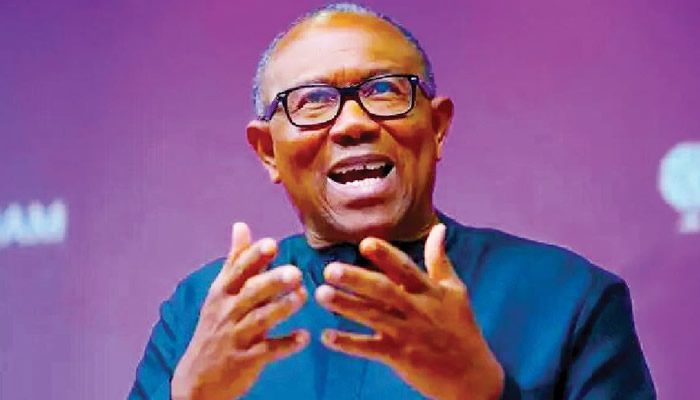Peter Obi, the Labour Party’s presidential candidate in the 2023 Nigerian election, launched a scathing critique of President Bola Tinubu’s economic policies, characterizing them as ineffective and detrimental to the nation’s progress. Obi highlighted the naira’s devaluation without corresponding productivity gains, the escalating national debt, and the exorbitant cost of debt servicing, which he argued was consuming funds meant for crucial sectors such as health and education. He contrasted this with his hypothetical presidency, asserting that within two years, Nigeria would have witnessed significant positive transformations driven by his focus on tackling corruption, reducing governance costs, and strategically investing borrowed funds in critical areas.
Obi’s criticism extended to the prevailing high interest rates under the Tinubu administration, which he contended were stifling businesses and hindering economic growth. He pointed to the rapid increase in national debt, soaring from N17 trillion to over N170 trillion in just two years, with debt servicing costs exceeding budgetary allocations for essential services like health and education. He emphasized the dire state of primary healthcare centers, with 70% non-functional, and pledged to prioritize their revitalization, along with primary schools, were he in power. He argued that the devaluation of the naira, while potentially beneficial, is disastrous without accompanying productivity improvements, which his administration would have prioritized.
Despite the political landscape, Obi affirmed his continued membership in the Labour Party while also acknowledging his collaboration with other political figures, including Atiku Abubakar, for the betterment of Nigeria. He stressed his commitment to a functional Nigeria over personal political ambitions, criticizing the prevailing political climate that prioritized power struggles over national development. He reiterated his motivation for contesting the 2023 election, driven by a desire to implement transformative changes, particularly in education and healthcare. He lamented the current state of affairs where many Nigerians struggle to afford basic necessities and emphasized the need for a leader capable of addressing these fundamental issues.
Obi further criticized President Tinubu’s leadership style, emphasizing the importance of direct engagement and accountability rather than delegating responsibilities. He argued that the president should be directly answerable to the people and possess the vision, energy, and competence to lead effectively. He also addressed the internal challenges within the Labour Party, attributing the disarray to government interference. He stressed the importance of democratic principles, advocating for a political system that embraces opposition and fosters a thriving democratic space. He called for constitutional changes to ensure proportional representation and prevent cross-carpeting without consequences, drawing parallels with South Africa’s more robust opposition system.
Obi’s critique also encompassed the political environment in Nigeria, which he described as hostile to opposition. He condemned the alleged intimidation tactics employed by the current administration and decried the lack of freedom of speech, citing instances of individuals being detained for expressing their views. He specifically criticized the government’s handling of the crisis in Rivers State, where a state of emergency was declared, arguing that such actions undermine the already fragile democratic framework. He highlighted the importance of a functional legislature and an independent judiciary as cornerstones of a healthy democracy.
Looking ahead, Obi acknowledged his involvement in political alliances but emphasized that any such collaborations must prioritize the nation’s future and address critical areas like education, not merely focus on acquiring power. He reiterated his commitment to working towards a functional Nigeria, highlighting his concern not for personal political gain but for the overall well-being of the country. He expressed reluctance to discuss the 2027 elections, choosing instead to focus on the urgent need for collaborative efforts to rescue Nigeria from its current predicament. His overall message underscored the importance of competent leadership, a thriving democratic space, and a focus on national development over political maneuvering.


